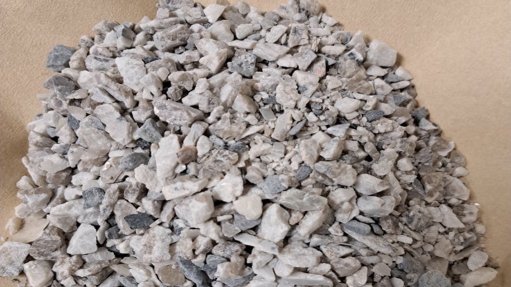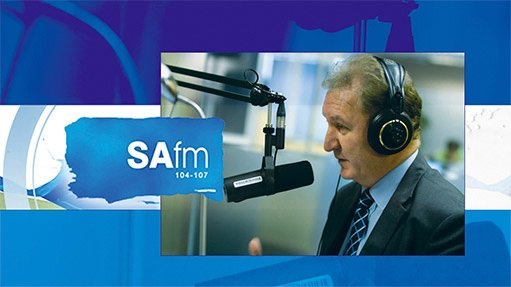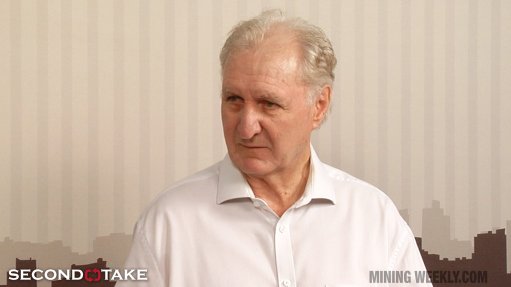Business weighs in on South Africa’s 2016 prospects
With South Africa expected to narrowly escape a technical recession this year and economic growth pegged at 1.5% and gross domestic product expansion at a marginal 1.7%, the country’s business leaders have added their voices to those expressing concern over the enduring regressive growth trend.
Fellow Brazil, Russia, India, China and South Africa, or Brics, countries were also feeling the pinch, with a slowdown in Chinese growth coupled with predictions that Brazil and Russia would post below–0% economic growth for 2015 and 2016.
Professional services firm KPMG CEO Trevor Hoole said this would be the second concurrent year that South Africa had faced rigorous market downgrading and underperforming productivity.
“Overall, 2015 was a tough year in which we saw lower macroeconomic numbers globally, particularly in developing economies.
“Simply put, it’s a tough market with more developing countries competing for less available revenue to support their growth. However, South Africa has the added challenge of trying to [retain] investor confidence,” he said in a statement.
Lower economic growth, coupled with power supply volatility, labour instability and the perception of a lack of leadership had, according to KPMG, driven a less optimistic stance by South African CEOs and foreign investors, which continued to impede investments into the country.
“Added to this, the Finance Ministry debacle in December has done little to instil confidence in our country’s leadership. Poor financial performance and weak corporate governance at State-owned enterprises also add fuel to the fire,” Hoole said, in reference to the short-term reshuffling of Ministers within the portfolio late last year.
Import capital specialist Blue Strata CEO Adam Orlin agreed, adding that South Africa’s recent ratings downgrade and the adverse impact on debt ratings and financing costs continued to cause significant concerns for business, particularly from an import perspective.
“This is also having a negative impact on the country’s ability to drive industrial growth. Therefore, the downgrade requires a critical response aimed at stabilising the business environment in terms of labour, currency and the ability to provide jobs and that, ultimately, will lead to a stabilisation of the rand – all of which are critical to domestic and foreign direct investment and industrial growth in the country,” he maintained.
Meagre Tax Coffers
Lower business growth and outputs had, meanwhile, impacted on tax revenue collection, with former Finance Minister Nhlanhla Nene announcing in his 2015 Medium-Term Budget Policy Statement a revised R7.6-billion downgrading in tax revenues for the year.
While the National Treasury had confirmed that additional taxes would be needed to increase available revenue for government’s investment projects, newly appointed Johannesburg Chamber of Commerce and Industry president Ernest Mahlaule cautioned that the verdict was still out on the form these increases would take.
“However, it is our considered view that any increase in corporate tax in 2016 would be counterintuitive. “The reality is that, owing to low productivity levels, the interrupted electricity supply seen during the better part of 2015, as well as the exchange rate that remains under pressure, profitability remains an important challenge.
“A tax increase for companies could, therefore, sway the balance and we may see more companies – particularly small and medium-sized enterprises – closing their doors, which will have a deteriorating influence on employment and future growth in the country,” he said.
According to KPMG, revenue numbers, to date, already demonstrated a negative growth in corporate income taxes for the year, as currently the collection rate was lower than the R179.5-billion collected in 2014, which was poised to shave a significant amount from the revenue potential.
However, corporate income tax revenue was not the only source of tax revenue in the red, with Orlin admitting that the weaker rand was having a significant impact on import taxes.
“Given that the rand fell to a new 13-year low against the dollar earlier this year and hasn’t recovered, this continues to place pressure on importers and it’s not surprising that there will be negative revenue growth in import-related taxes for 2015.
“South Africa is increasingly dependent on imported goods and, even when products are manufactured locally, they often use imported components,” he said, adding that importers were seldom able to immediately pass on price increases to their customers.
Continental Agenda
As the profit margins of businesses operating in South Africa continued to suffer, ever- growing numbers of forward-thinking businesses were looking beyond the country’s borders to increase their business prospects, fleet and mobile asset manager MiX Telematics Africa MD Brendan Horan asserted.
“While demand is low from many of the country’s overseas trading partners, it presents an ideal opportunity for government to review some of the country’s regional trade policies and intra-Africa investment strategies. The same can be said for businesses operating in South Africa.
“I believe we need to break away from traditional thinking that, to stimulate growth in South Africa, industrial activity needs to happen within the country. “For any South African business that doesn’t want to miss the opportunity to [capitalise] on Africa’s growth, it has become imperative to have a cross-border or intra-Africa investment strategy in place,” he commented.
This would, however, require greater cooperation between government and the private sector and an alignment of each party’s business objectives.
“This should be underpinned by an establishment of sustainable public–private partnerships that are not characterised by the prevailing trust deficit between the two key partners. “It’s about working together to put the boom back in business in the country for 2016 and beyond,” Mahlaule concluded.
Article Enquiry
Email Article
Save Article
Feedback
To advertise email advertising@creamermedia.co.za or click here
Press Office
Announcements
What's On
Subscribe to improve your user experience...
Option 1 (equivalent of R125 a month):
Receive a weekly copy of Creamer Media's Engineering News & Mining Weekly magazine
(print copy for those in South Africa and e-magazine for those outside of South Africa)
Receive daily email newsletters
Access to full search results
Access archive of magazine back copies
Access to Projects in Progress
Access to ONE Research Report of your choice in PDF format
Option 2 (equivalent of R375 a month):
All benefits from Option 1
PLUS
Access to Creamer Media's Research Channel Africa for ALL Research Reports, in PDF format, on various industrial and mining sectors
including Electricity; Water; Energy Transition; Hydrogen; Roads, Rail and Ports; Coal; Gold; Platinum; Battery Metals; etc.
Already a subscriber?
Forgotten your password?
Receive weekly copy of Creamer Media's Engineering News & Mining Weekly magazine (print copy for those in South Africa and e-magazine for those outside of South Africa)
➕
Recieve daily email newsletters
➕
Access to full search results
➕
Access archive of magazine back copies
➕
Access to Projects in Progress
➕
Access to ONE Research Report of your choice in PDF format
RESEARCH CHANNEL AFRICA
R4500 (equivalent of R375 a month)
SUBSCRIBEAll benefits from Option 1
➕
Access to Creamer Media's Research Channel Africa for ALL Research Reports on various industrial and mining sectors, in PDF format, including on:
Electricity
➕
Water
➕
Energy Transition
➕
Hydrogen
➕
Roads, Rail and Ports
➕
Coal
➕
Gold
➕
Platinum
➕
Battery Metals
➕
etc.
Receive all benefits from Option 1 or Option 2 delivered to numerous people at your company
➕
Multiple User names and Passwords for simultaneous log-ins
➕
Intranet integration access to all in your organisation


















